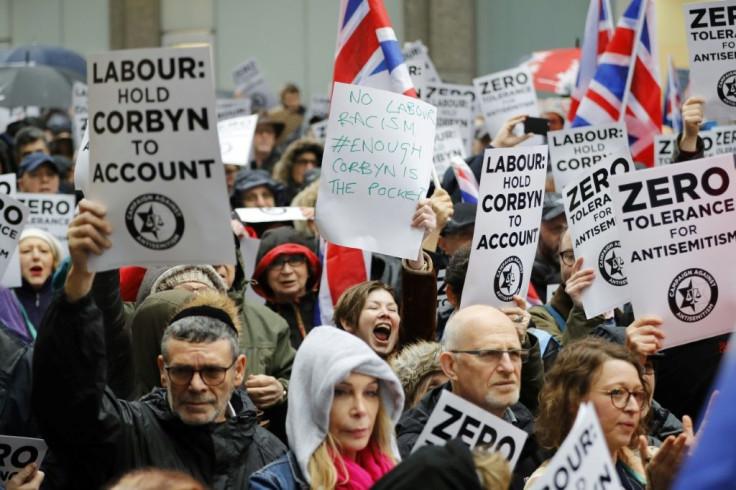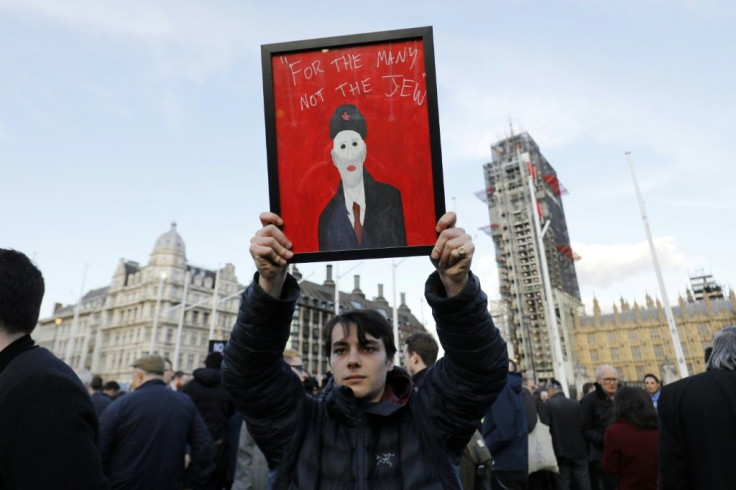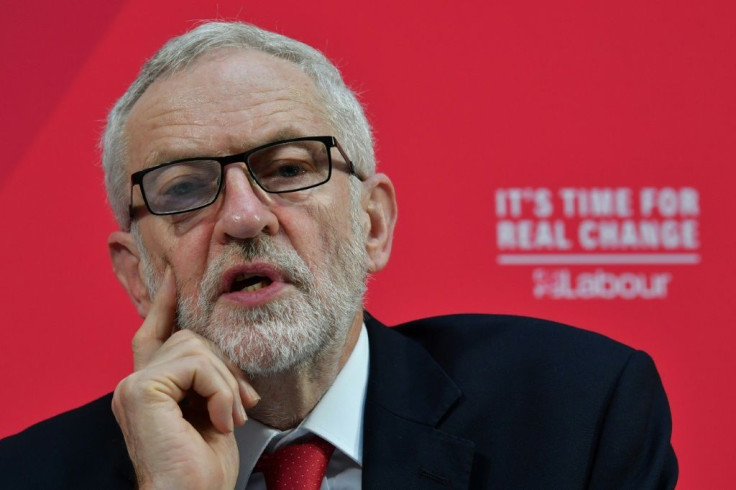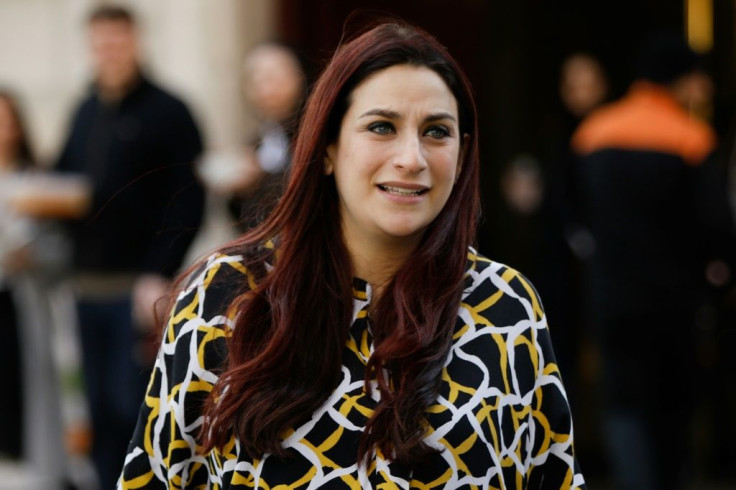Anti-Semitism Stokes Fear And Election Angst In UK's 'Bagel Belt'

Labour party candidate Holly Kal-Weiss sums up the mood of Jewish constituents she's met on the election campaign trail in the "bagel belt" constituencies around north London.
"People are frightened," she told AFP as she canvassed in the area, so-called because of its sizeable Jewish population. "You can hear it in their voice".
Kal-Weiss, who is also Jewish, said the rift between the party she represents and her own community was personally "very painful", testing traditional loyalties and sowing division.
Britain goes to the polls on Thursday and accusations of anti-Semitism that have dogged Labour and its leader, Jeremy Corbyn, could well influence the overall result.
Brexit and the effects of austerity have been key issues, but the question of whether the party and its leader have a problem with Jews has also been a recurring theme.
Last month, Britain's Chief Rabbi Ephraim Mirvis made an unprecedented intervention, urging followers to vote with their conscience.
But his message was clear: "A new poison -- sanctioned from the very top -- has taken root," he said, warning that the "very soul of our nation is at stake".

The Jewish Labour Movement (JLM) is one of the oldest socialist societies affiliated to the Labour party, but last week accused Corbyn personally of anti-Semitic behaviour.
Some 70 Labour staff contributed to a dossier handed to a human rights watchdog probing the claims. One listed 22 examples of alleged abuse at party meetings.
On one occasion, he said he was told: "Hitler was right."
Veteran socialist Corbyn, his supporters and the party pride themselves on their history of fighting racism, which they believe to be a right-wing scourge.
Corbyn has repeatedly said he "abhors" anti-Semitism. His defenders argue the accusations stem purely from his opposition to Israel's actions against the Palestinians.

But author and anti-Semitism expert David Hirsh said there was a "long history of authentically left-wing anti-Semitism" within the socialist movement.
"Jeremy Corbyn, if you say to him, 'Tell me about the history of anti-Semitism within your own movement', he probably just won't know the story," he said.
Hirsh, a former Labour students leader, said the rise of populist conspiracy theories in the age of the internet and anti-establishment rage had put Jews in the firing line.
"Often the way that 'capitalism' is used or the way the word 'the ruling-class' is used is a kind of conspiracy fantasy. Right-wing and left-wing populism have so much in common," he added.

Kal-Weiss, who is running in the Hertsmere seat south of St Albans, admitted Labour had "underestimated the in-built fear" within the community.
Close historic ties between the Jewish community and socialists had been tested, she added.
"I'm an active member of a synagogue," she explained in her car, shortly after hitting the streets on a freezing cold December night.
"Up until recently, there would have been a lot of Labour voters there. But there is a lot of angst. There's a lot of anger out there, from the Jewish community directed at me.
"It's not nice. I was raised within the Jewish community that it's really important to look after everybody," she added. "I'm living my Judaism and they're cross with me".
In the Finchley and Golders Green constituency in northwest London, Conservative candidate Mike Freer is facing a stiff challenge to retain his seat.
His main challenger is the Jewish former Labour MP Luciana Berger, who quit the party over anti-Semitism to join the Liberal Democrats.
"You talk to people who are in their 80s and 90s and they were terrified. The words that resonated were, 'This is how it started in Germany'," he said.
Local voter Brian Lacey, 83, told Freer from his doorway: "I run an art group locally and we have lots and lots of Jewish people, most of them are so upset.
"I can see history repeating itself. That may be an exaggeration at this point but all these little gremlins start and they gather momentum."
But for those who fear a "right-wing" Brexit, picking a candidate is particularly difficult, as Labour represents the only realistic chance of reversing the 2016 referendum result.
"I'm honestly not sure which will be worse in the long run, Corbyn... or (Boris) Johnson," said one homeowner, who asked not to be named but identified as a secular Jew.
He is worried about the Conservative prime minister's commitment to Britain's departure from the European Union.
"We have some sense of history and how little things became big things," said the pensioner.
"I don't have that kind of fear, I think there's a bit more resilience in this country. But some people do."
© Copyright AFP 2024. All rights reserved.





















